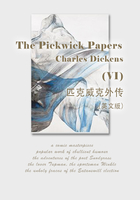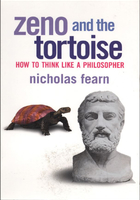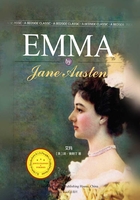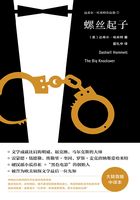BOOK THIRTEEN: 1812
Man's mind cannot grasp the causes of events in their completeness, but the desire to find those causes is implanted in man's soul. And without considering the multiplicity and complexity of the conditions any one of which taken separately may seem to be the cause, he snatches at the first approximation to a cause that seems to him intelligible and says: "This is the cause!" In historical events (where the actions of men are the subject of observation) the first and most primitive approximation to present itself was the will of the gods and, after that, the will of those who stood in the most prominent position- the heroes of history. But we need only penetrate to the essence of any historic event- which lies in the activity of the general mass of men who take part in it- to be convinced that the will of the historic hero does not control the actions of the mass but is itself continually controlled. It may seem to be a matter of indifference whether we understand the meaning of historical events this way or that; yet there is the same difference between a man who says that the people of the West moved on the East because Napoleon wished it and a man who says that this happened because it had to happen, as there is between those who declared that the earth was stationary and that the planets moved round it and those who admitted that they did not know what upheld the earth, but knew there were laws directing its movement and that of the other planets. There is, and can be, no cause of an historical event except the one cause of all causes. But there are laws directing events, and some of these laws are known to us while we are conscious of others we cannot comprehend. The discovery of these laws is only possible when possible when we have quite abandoned the attempt to find the cause in the will of some one man, just as the discovery of the laws of the motion of the planets was possible only when men abandoned the conception of the fixity of the earth.
The historians consider that, next to the battle of Borodino and the occupation of Moscow by the enemy and its destruction by fire, the most important episode of the war of 1812 was the movement of the Russian army from the Ryazana to the Kaluga road and to the Tarutino camp- the so-called flank march across the Krasnaya Pakhra River. They ascribe the glory of that achievement of genius to different men and dispute as to whom the honor is due. Even foreign historians, including the French, acknowledge the genius of the Russian commanders when they speak of that flank march. But it is hard to understand why military writers, and following them others, consider this flank march to be the profound conception of some one man who saved Russia and destroyed Napoleon. In the first place it is hard to understand where the profundity and genius of this movement lay, for not much mental effort was needed to see that the best position for an army when it is not being attacked is where there are most provisions; and even a dull boy of thirteen could have guessed that the best position for an army after its retreat from Moscow in 1812 was on the Kaluga road. So it is impossible to understand by what reasoning the historians reach the conclusion that this maneuver was a profound one. And it is even more difficult to understand just why they think that this maneuver was calculated to save Russia and destroy the French; for this flank march, had it been preceded, accompanied, or followed by other circumstances, might have proved ruinous to the Russians and salutary for the French. If the position of the Russian army really began to improve from the time of that march, it does not at all follow that the march was the cause of it.
That flank march might not only have failed to give any advantage to the Russian army, but might in other circumstances have led to its destruction. What would have happened had Moscow not burned down? If Murat had not lost sight of the Russians? If Napoleon had not remained inactive? If the Russian army at Krasnaya Pakhra had given battle as Bennigsen and Barclay advised? What would have happened had the French attacked the Russians while they were marching beyond the Pakhra? What would have happened if on approaching Tarutino, Napoleon had attacked the Russians with but a tenth of the energy he had shown when he attacked them at Smolensk? What would have happened had the French moved on Petersburg?... In any of these eventualities the flank march that brought salvation might have proved disastrous.
The third and most incomprehensible thing is that people studying history deliberately avoid seeing that this flank march cannot be attributed to any one man, that no one ever foresaw it, and that in reality, like the retreat from Fili, it did not suggest itself to anyone in its entirety, but resulted- moment by moment, step by step, event by event- from an endless number of most diverse circumstances and was only seen in its entirety when it had been accomplished and belonged to the past.
At the council at Fili the prevailing thought in the minds of the Russian commanders was the one naturally suggesting itself, namely, a direct retreat by the Nizhni road. In proof of this there is the fact that the majority of the council voted for such a retreat, and above all there is the well-known conversation after the council, between the commander in chief and Lanskoy, who was in charge of the commissariat department. Lanskoy informed the commander in chief that the army supplies were for the most part stored along the Oka in the Tula and Ryazan provinces, and that if they retreated on Nizhni the army would be separated from its supplies by the broad river Oka, which cannot be crossed early in winter. This was the first indication of the necessity of deviating from what had previously seemed the most natural course- a direct retreat on Nizhni-Novgorod. The army turned more to the south, along the Ryazan road and nearer to its supplies. Subsequently the in activity of the French (who even lost sight of the Russian army), concern for the safety of the arsenal at Tula, and especially the advantages of drawing nearer to its supplies caused the army to turn still further south to the Tula road. Having crossed over, by a forced march, to the Tula road beyond the Pakhra, the Russian commanders intended to remain at Podolsk and had no thought of the Tarutino position; but innumerable circumstances and the reappearance of French troops who had for a time lost touch with the Russians, and projects of giving battle, and above all the abundance of provisions in Kaluga province, obliged our army to turn still more to the south and to cross from the Tula to the Kaluga road and go to Tarutino, which was between the roads along which those supplies lay. Just as it is impossible to say when it was decided to abandon Moscow, so it is impossible to say precisely when, or by whom, it was decided to move to Tarutino. Only when the army had got there, as the result of innumerable and varying forces, did people begin to assure themselves that they had desired this movement and long ago foreseen its result.















